




EDITORS




LAYOUT & DESIGN
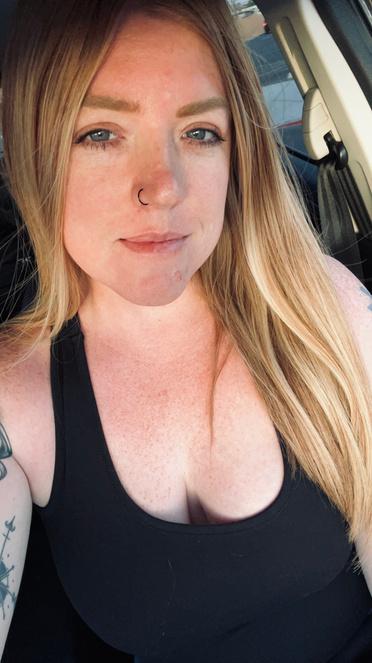

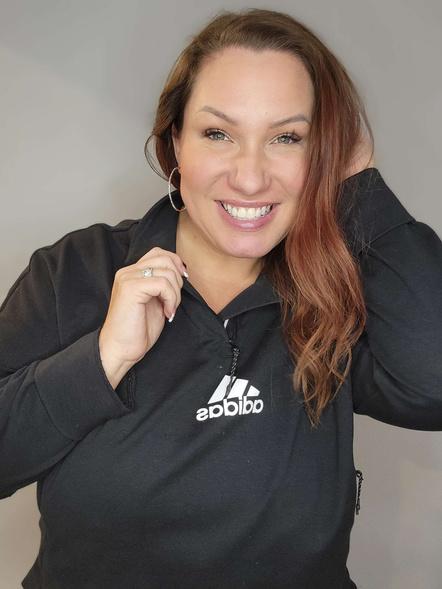


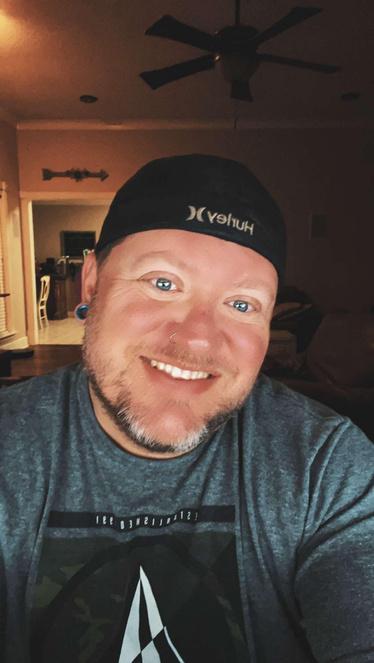




STAFF SPOTLIGHT OF THE MONTH STAFF SPOTLIGHT OF THE MONTH








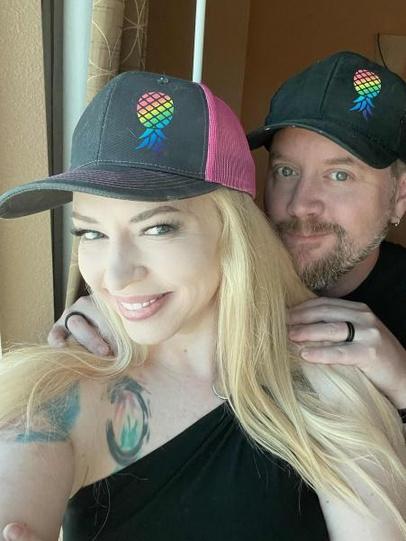






























When people get into the lifestyle (LS), they are concerned about anonymity. This is normal because this is not exactly a generally-accepted practice. People fear they will be discovered by someone they know. Also, when anyone first gets into this, they are not sure they will stay in it, so no need to expose themselves. We all not only fear judgment, but the possible ramifications in our personal and professional lives. Many start with fake names, at least on their profiles –maybe even upon meeting others. Profiles are filled with pictures of us with emoji smiley faces covering our own, at least until we trust someone enough to send them “face pics.” We are all equally scared of being discovered, with discretion highly valued by our tribe.
There are some polyamorous folks, of course, who just know this is who they are, and in my experience, they are more likely to be open about it. That’s great, because I feel they are paving the path for some of us more heathen-like non-monogamous types who opt for other paths in the lifestyle. My theory is that the polyamorous are the crew that are leading the way on the non-monogamous-acceptance path because they can fall within the “love is love” narrative of the LGBTQ+ movement. Some of us fit into that movement, while some of us are probably more in the shadows of the + , or “and more.” The narrative is out there and it’s a good one, but the swingers? We are not in this for love and we’ll say so. We are in this for sex. Gasp! Sex for pure pleasure’s sake? I mean, God might be able to get behind “love is love,” and God might have made gay people, but swingers? Ultimately, our culture is still driven by religious puritanism, even if who God is and what She thinks is getting murkier every day.

Usually, once people have been in the LS for a while, they relax a bit. Most revert to using their own names. We all realize that if we bump into our neighbors, well, we are discovering this about each other. Then, the longer we stay in it, the more normal it becomes and the more our identity may be defined by it. When we got into it, experienced folks would tell us how eventually they only hung out with LS friends. After a few years, we understood. It’s not only that LS people are just a very fun and open crowd, but it’s also who you become the most comfortable hanging out with because they actually know things about you that you hide from others.

I think that might be the thing that makes LS friendships curiously deep quite quickly. We hold each other’s secrets, or at least one of them. They know the deepest things about you and have seen you at your most intimate and vulnerable –yet they may not remember how many children you have or where you grew up. Of course, the amount that people “identify” as being lifestyle is a complicated conversation, and that almost constantly evolves.
Of course, the amount that people “identify” as being lifestyle is a complicated conversation, and that almost constantly evolves. So while what I say might be true of those who completely identify with it, it may vary in its level of truth depending on where people are on that spectrum at any time. As it does become more of your identity, questions arise as to whom you might tell. I mean, can a vanilla friendship last and be authentic when the answer to, “What did you guys do last night?” cannot be, “Well, we ended up at a six-person orgy and it was the most amazing experience of my life,” but will instead be something like, “We went out with friends for dinner and some drinks after.” Is it even fair to expect it to?

I said the same things as everyone, “My friends don’t care who I’m having sex with, so why do they need to know?” Then eventually I started to feel strange not telling them – the ones I loved the most, anyway. My situation is unique, becoming a lifestyle coach, but still, it’s a question with which most will likely grapple. Everyone has their own comfort level around telling anyone and, if so, who.


My journey with that was such that when we first got into the lifestyle, we didn’t know what we were looking for. My husband had said, “I think there’s something more,” and I spun for a while not knowing what this meant. I am a person who relies heavily on my girlfriends to make it through life so my bestie had to know my struggle. She didn’t know what “more” meant, either, but she was there for me every step of the way. As my husband and I experimented and learned what more was going to mean for us, she heard about all of it. She fell into the “truly fascinated” category of friend reactions. In my experience, those we have told have fallen into one of several categories:
These are the “Not for them but tell me more!” crowd. They love the details (well, maybe not every detail), and love to hear about the dynamics. These folks have many questions. My friend would never consider non-monogamy for her and her husband, but she has had as many insights about the dynamics of the LS as I have.
With these folks, they are excited to be inthe-know and that you felt safe telling them. They’ll have questions and they’ll bring it up again if they think of others, but they don’t have the fascination factor. My sister was one of these. I was sweating about sharing with her, but we are close and it got weird not telling her. When I did reveal she said, “That’s cool!” “It is?” I questioned, “How is it cool?” “Because you two are doing what is right for you.” “Oh,” I thought, “that is cool!” We haven’t talked much about it since, but at least I don’t have to lie about where we are going on vacation now.
These are the ones who might say, “Thanks for sharing with me,” if they think of this often-used phrase. They are polite – you get the sense you won’t be losing them as friends, but it’s kind of awkward. They don’t know what to say, so neither do you. They’ll maybe ask a question or two, but they probably won’t ever bring it up again. That’s fine by you. You now feel better that they know, but you aren’t sure how they feel.
This was a wake-up call to remind me that this is still not an accepted idea among the masses. A few years ago I went to what I like to refer to as “therapy camp.” I went to deal with some childhood trauma that kept lingering and raising its head within my relationships. During this camp, we were put into small groups of 8–10, and we spent days getting to know one another and sharing the reason we were each there. We were probably more vulnerable with each other than we would be with almost any others. Afterwards, we created a texting chat group and we stayed in touch. Of course, the frequency became less over the years but about every six months someone would pop in with a, “Thinking about y’all!” Several were from the South!
Then I had a different Then I had a different Then I had a different experience altogether. experience altogether. experience altogether.
Just after launching this career, during one of these pop-ins, I wrote to the group about my career in life and relationship coaching. I got comments back about how great that was. Then I texted and said, “I’ll be vulnerable with y’all and send you my website. My husband and I have been nonmonogamous for five years and I can’t remember if I told any of you this at our retreat.” I waited. Crickets. No response.
I went to bed wondering if anyone would see and respond over the next day. The next morning I couldn’t help myself and I chimed in, “Really? No comment? No one has anything to say about this?” A little while later one of the women chimed in, “Best of luck to you, Lauren.” Huh. I had been effectively written off by my therapy camp group. I suspect another text string was created without me in it, or my coming-out destroyed the group altogether.
That was pretty low-stakes for me, given they weren’t people I was in touch with often. I also thought the probability of acceptance would be high, given all we had been through together. Nope. It was a good reminder that I need to be very thoughtful about whom I tell. While some people even share with their children, my husband and I don’t think it’s the right time. We are also concerned that if we were open our children’s lives would be negatively affected by judgmental people.
“It’s none of their business” is one version of what we used to think. Now, it quite literally is my business. With that last experience of reveal, for now, we decided maybe it is safer to stay in the shadows of “and more.”
Someday, we do hope we can be open about our lifestyle. It’s not what we feel we need to lead with when we meet people, but we have come to feel that we can have more authentic friendships with those we can share it with.BY BUSTYBLUEEYES420

Anyone that is in the lifestyle and has children will very quickly discover the challenges faced while juggling your “double life.” When it comes to parenting and being a swinger, there are a number of interesting things to consider. This does not apply to just small children, but our teens and adult children as well.

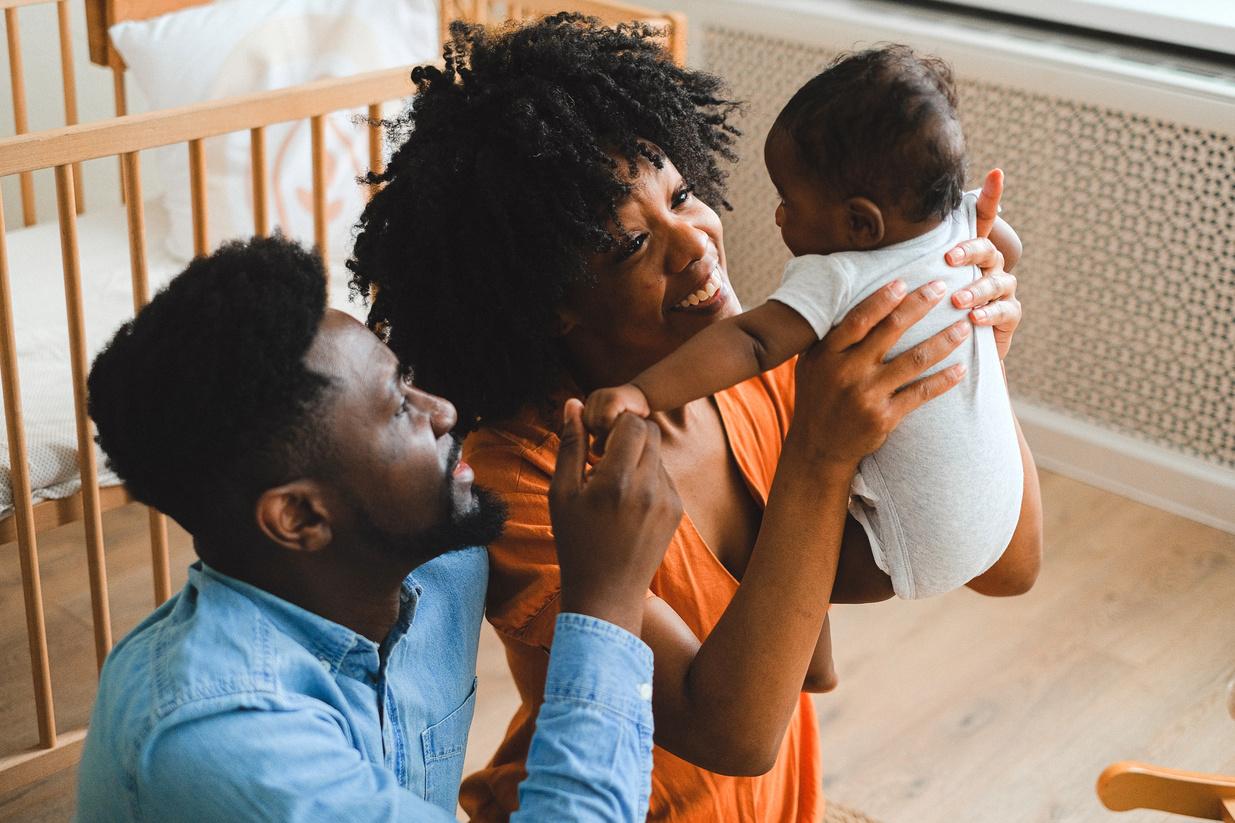




When your children are young, the biggest obstacle parents face while being in the lifestyle is generally child care. Grandma and Grandpa are great but they are only going to have sleepovers so often! If you are planning to stay out until 2 or 3 in the morning, finding babysitters can also pose a problem. It's unlikely they will ever ask, but many babysitters will wonder where you are going to be that stays open that late
Another challenge you may face with younger kiddos is they don't care one bit how late you were out the night before. They'll be sure to wake before the sun rises and you're just going to have to deal! Other than that, young children might be less complicated to navigate than older kids when it comes to swinging.
Returning home with teenagers poses a big problem because they never go to sleep! Never. No matter how late you come home, somehow not only are they always awake but you cannot avoid them. Now you're being interrogated like you're the teens. "Where were you?” “Why are you home so late, and who were you with?" This also means you're going to have to make sure you don’t look like a hot mess! After having enjoyed yourselves in spicy fun, you likely don't look as put together as you did when you first left the house and that's only if you can even return home in what you wore while you were out. Many of us change our clothing on the car ride there and home because you can't risk getting caught in your "hoochie mama clothes!”
You might think that when our children are old enough to leave home you'd be able to enjoy the lifestyle without a care in the world. Wrong! Adult children present their own set of challenges. Up first, you have to consider that one day they could show up at a swingers club or at a lifestyle event all on their own. Next, consider multiplying the risk of being found out by the number of friends your adult children have. They, too, might stumble upon the club you frequent or websites you're affiliated with.

Regardless of their age, when you have children while in the lifestyle, at some point there may be questions you cannot avoid and/or they may just find out on their own. What's important is to confirm with them that love and happiness can occur in many different forms and doesn't affect the love you and your family share. Encourage them to come to you with questions and remember to give them grace as they process your responses.

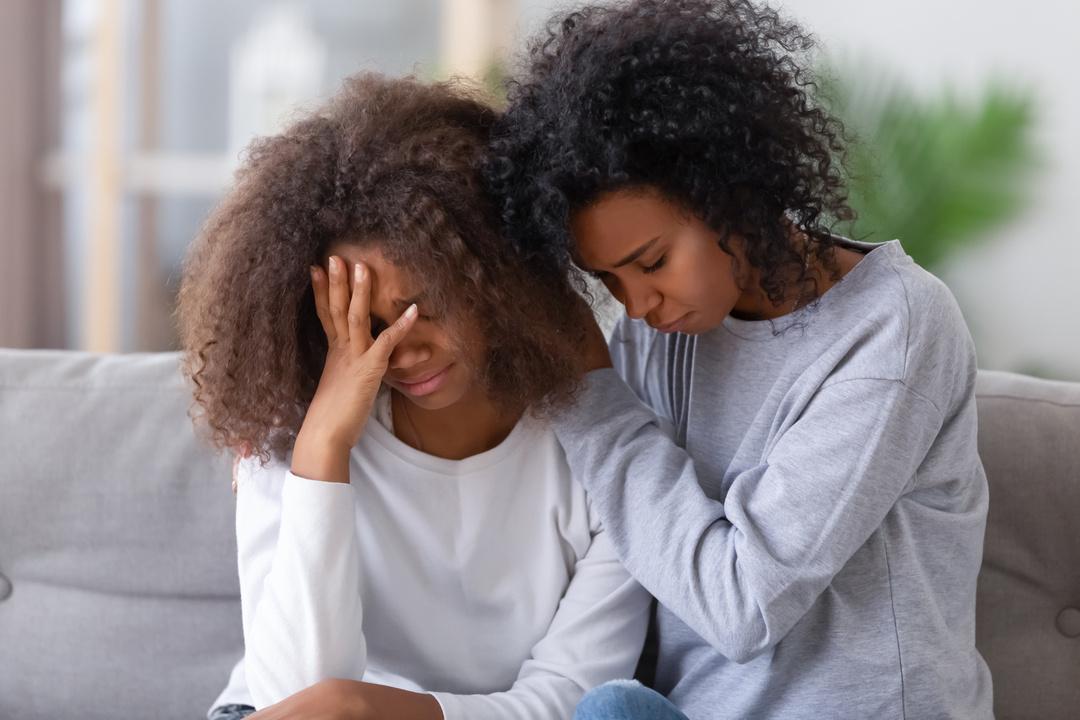

MoreFu 10. 09. 08. 07.
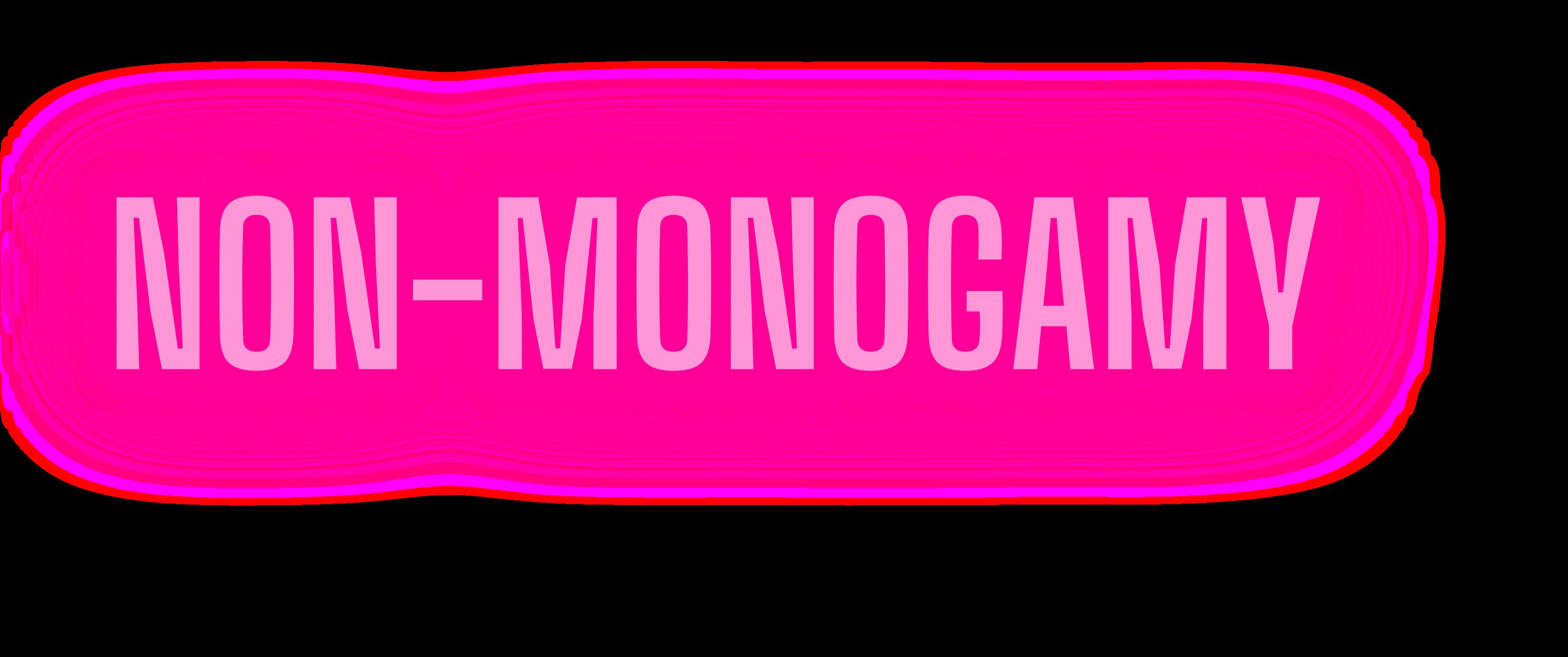
Swingingan e opportunitie experiences
Theserelationshipscanoffermoreflexibilitythanmonogamousrelationships.Thisis becausetheycanbetailoredtomeettheindividualneedsanddesiresofthepartners involved.


Theserelationshipscanhelptoreducestressandanxietyinsomepeople.Thisis becausethelifestylecanprovideanoutletforpent-upemotionsandsexualenergy. Manypeopleinswingingandnon-monogamousrelationshipsreporthigherlevelsof sexualsatisfactionthanthoseinmonogamousrelationshipsThisislikelyduetothefact thattheyhavemoreopportunitiestoexploretheirsexualityanddesireswithdifferent partners 06.
Manypeopleintheserelationshipsreportthattheyaremorefulfilledintheirrelationships thanthoseinmonogamousrelationships.Thisislikelyduetothefactthattheyhave moreopportunitiestomeettheirneedsanddesires
Swingingandnon-monogamouscommunitiescanprovidesupportandfriendshipto peoplewhomayfeelisolatedormarginalized.Thelifestyleismostoftenawelcome spacefortheLGBTQIA+community.

Swingingandnon-monogamousrelationshipscanofferopportunitiesforpersonal growth.Thisisbecausetheycanchallengepeopletostepoutsideoftheircomfort zonesandtoexploredifferentaspectsofthemselves.
Swingingandnon-monogamousrelationshipscanhelptoincreaseself-confidencein somepeople.Thisisbecausetheycanprovideopportunitiestoexploredifferentaspects ofoneselfandtofeeldesiredbyothers
Swingingandnon-monogamousrelationshipsrequireahighleveloftrustand understandingbetweenpartners.Thiscanleadtodeeperandmoremeaningful connections.
Almostalwaysthisisthenumber1answeryouwillgetwhentalkedtomembersofthe ENMcommunity!Theserelationshipsrequireahighlevelofcommunicationand negotiationbetweenpartnersThiscanleadtostrongerandmorehonestintimate relationships.
Itisimportanttonotethatnon-monogamyarenotforeveryone.Theyrequirea highlevelofcommunication,trust,andhonestybetweenpartners.Itisalso importanttobeawareofthepotentialrisksinvolved,suchasjealousy,insecurity, andsexuallytransmittedinfections.
Ifyouareconsideringnon-monogamy,itisimportanttodoyourresearchandto talktoyourpartner(s)aboutyourexpectationsandboundaries.Itisalsoimportant tofindasupportivecommunityofpeoplewhocanofferguidanceandsupport.
TN _ Gal _ Nicole joins ALT Life as editorial operations, and is passionate about ENM education





TN _ Gal _ Nicole joins ALT Life as editorial operations, and is passionate about ENM education




I would like for everyone to know that my husband and I are here to help people stuck in a sexless life. We wouldn’t have all these erogenous zones if they weren’t meant to be explored and tapped into. This is a little hint to wh


HOWLONGHAVEYOUBEENLIVING ANALTLIFE?WHATATTRACTED YOUTOIT?
I started dabbling in a more promiscuous life in my late teens, which now looking back, it was more of an alternative lifestyle. But then I was in a monogamous relationship for 17 years that sucked that life out of me.
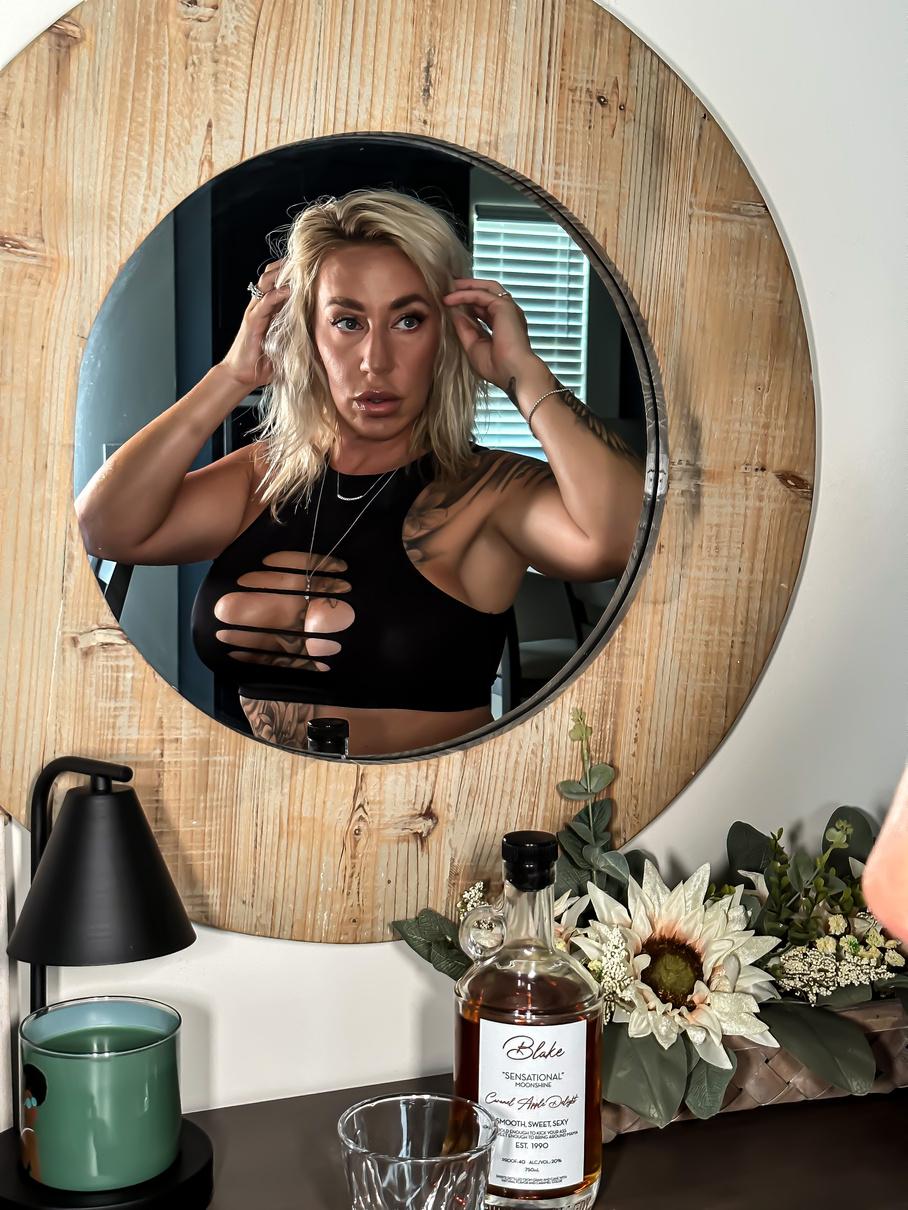
HOWWOULDDOYOUDEFINE YOURALTLIFE?
Defining my alternative life is forever evolving. We are humans that have always evolved and will always evolve. So something that I enjoy today or even this year could possibly change. But changing is OK it’s also part of being a human.
WHATISYOURBIGGESTTURNON?
HUMILITY HUMILITY HUMILITY
What Living an alternative lifestyle means to me, is living a life for ME, being authentically myself, rather than for what society thinks I should be living.
WHATISYOURFAVORITEVANILLA ACTIVITY?
That is a difficult one, because my true passion lies with opening the eyes of vanilla people to the possibilities of opening their relationship to a heightened sex life. It can still remain monogamous, however, bringing kinks and toys and experiences into the relationship. I still believe to be under an alternative lifestyle.
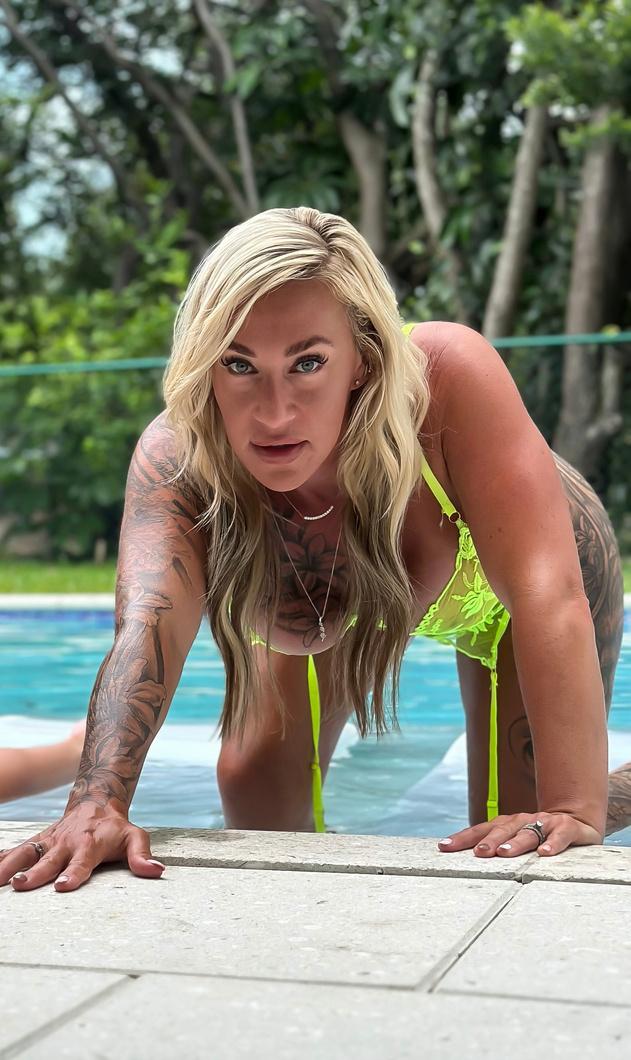
WHATISYOURBIGGESTTURNOFF? M I
WHATISONELESSONYOUHAVELEARNON YOURALTLIFEJOURNEY?
Some thing that I have learned since being in an alternative lifestyle is never taking one for the team. When you are in a relationship, if your partner is not enjoying it, it is something that thing I’m back to haunt you.
WHATISONETHINGONYOURBUCKET LISTYOUHOPETODOTHISYEAR?
WHAT'SYOURGU EROTIC D EROTIC D EROTIC
To launch my podcast
To launch my podcast my podcast along with building my along with building my my program. program. program.
WHATISYOURFAVORITEFOOD?
MEXICAN MEXICAN FOOD FOOD
Being in an alternative lifestyle has affected my vanilla life. Many people can’t seem to get past what I do or they think that want to get them in bed. But the best part is, it actually shows people’s true colors and I don’t want those people in my circle anyways.
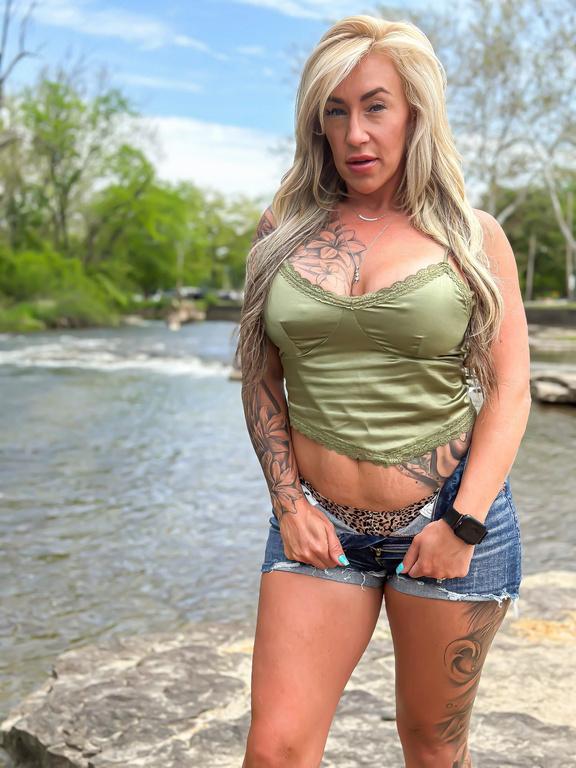
My eyes are still closed, not as tightly as they were during my release, but I have not yet found the energy to re-open them. A bead of sweat slowly crawls across my forehead and down my hairline. I want to wipe it, but my arms are tucked under him and I am convincedtheyweighfortypoundseach.



The silence of the room is only broken up by the rhythmic sounds of our breathing. Not quite in sync, more like two accompanying instruments. His is more rushed, and a little more labored than mine from the work he put in. It is warm and almost wet as he breathes on my ear, my neck. Almost like his breath is sweatingtoo.

With the full weight of his body on me I could meltintothisbed,disappearintothismoment, untilrealworldneedscomeforme.

I put it off as long as I can. As if he is reading my mind, he peels off of me easily, but with hesitation, like an old sticker that has been dampened but refuses to let go of its surface. His hand goes out to mine, helps me to my feet, kisses my forehead, and that pesky bead of sweat drops to my collar bone.



He follows me to the bathroom, with a pat on my butt as we clean up. There is snackmaking and water-getting. Keeping the shower on so it stays warm, we remake the bed and give kisses on the tips of noses. Sometimes it’s a “hold me because I need more of you” or a “let me be, I’m exhausted.” On other days, it’s a playful poke in the bruises that were left, or a kiss where I’m tender. It’s been a conversation full of “I loved this”, or “I don’t want that again”, or “maybe next time we could.” It comes in many forms and is not always the same, but it is always present. This is our dance, our priority, the way we show we care and take care of each other.

“Go pee – you’ll regret it if you don’t,” he reminds me.
“I have to get up”, I say.
“I know”, he mutters but neither of us move.
Aftercare is a broad term to encompass how you and your partner(s) take care of each other or check-in after you have any form of sex. Caring for your partner(s) before, during, and after “With great power comes great responsibility.” -- Winston Chu or Spiderman – you decide. The message remains the same.
Aftercare has been considered a crucial part of the BDSM and community, but now we are seeing attention given to afterca non-kink communities and monogamous couples. I recently h friend tell me aftercare was more important to her than forepla

In the BDSM community, it is not only important, but also esse to practice some sort of aftercare. Certain (but certainly no elements of BDSM can include pain and humiliation. Treating body for intentional and accidental injuries may be required, checking in emotionally with your partner(s) after sex prom lasting sexual satisfaction for all involved.
Aftercare as it relates to non-monogamy can be as much or as as the primary couple desires. There are no set guidelines, only boundaries you and your partner set for yourselves. One thing can all agree on is the importance of conversation. Dive deep your partner’s feelings on the recent play activities. Listen and learn what worked for them and what didn’t. Excellent communication only increases your success in the future.
Aftercare hasnoset importance of conversation guidelines. Listen & Learn Listen & Learn
I asked my friends, and your friends, and a few hundred articles on the topic to compile a list of some of the most common forms of aftercare:
The goal here is to create a routine, a habit of taking care of each other’s needs. Sex is intimate and often makes us feel vulnerable. Aftercare is a way of showing kindness and caring to your partner(s). Sex can still be casual even if aftercare is included. It just lets the other person know they are important.
With the growing prevalence of consensual non-monogamy, we’re beginning to see more depictions of non-monogamous relationships in the media. However, not all portrayals are created equal! Some present authentic, honest, human depictions of ways in which some people choose to structure their families and relationships. Others unfortunately perpetuate harmful stereotypes and stigmas.

That’s why we created this resource to help people assess media portrayals of consensually non-monogamous relationships. Whether you’re a media consumer or creator, we hope that this tool will help promote a more accurate and compassionate of those engaged in consensual non-



If not, it’s not consensual non-monogamy. Any portrayal that presents someone cheating as “swinging” or “polyamory” etc. gets an F.
Is there an identification of commitment within the relationship(s), or are connections presented as “flings,” “hookups,” or passing arrangements?
Is there an authentic portrayal of the diverse forms that CNM relationships take?
Ensure that the portrayal goes beyond the stereotype of a perfectly balanced, closed triad (usually two bisexual women and a straight man) and explores the diverse range of non-monogamous relationship structures.

Does the media depict diverse family structures and/or illustrate the concept of “chosen family?” We rarely see portrayals of polyamorous parents on screen.
Is CNM depicted as morally neutral? Often used to indicate negative traits or intentions on the part of the character. Convenience is shorthand for vice, hedonism, lack of commitment, selfishness, and other negative characteristics.
Does the media depict the authentic work that is required for any relationship to function? Do the characters talk about their desires, needs, boundaries, and emotional experiences? Do we see them aligning their schedules, or dealing with jealousy?
What are the character’s motivations and intentions for pursuing consensual non-monogamy? Is it motivated by an authentic desire for more connection, or is it a matter of “relationship broken, add more people?”




Does the media address how non-monogamy intersects with other identities such as queerness, asexuality, class, race & ethnicity? 1.
Is the portrayal more sexualized than other relationships depicted in this media? Does sex/sexuality make up the majority of the relationship’s depiction?
Have hat is partic ove to hear a essage us on Twitter, Instagram, or Facebook @openloveorg.


Wax play is a form of BDSM activity where melted wax is dripped onto a person ' s body for sensual or erotic stimulation. Erotic wax play is a sensual and adventurous activity that can add excitement and intimacy to your relationship. It involves using melted wax from special candles for sensory stimulation. However, safety and communicationareessentialforapositive experience. If you ' re curious and want to exploreeroticwaxplay,here'sabeginner's guidetogetyoustarted:
Select candles designed for wax play. These candles are typically made of low-temperature, body-safe wax, like soy or paraffin, which melts at a lower temperature and won't cause burns or skin damage. Avoid using regular household candles or scented candles, as they may burn too hot.


Before you begin, take the time to learn about wax play. Read books, articles, or watch instructional videos to understand the techniques, safety precautions, and the type of candles to use.


Paraffin Wax: This is a commonly used wax for beginners due to its low melting point and easy availability. It's relatively safe for wax play, as long as the candles are specifically designed for skin contact and have a lower melting temperature.

Soy Wax: Soy wax is a popular choice because it has a lower melting point and tends to be cooler when applied to the skin. It's also biodegradable and considered more environmentally friendly.
Beeswax: Beeswax is known for its natural and pleasant aroma. It has a higher melting point than paraffin or soy wax, so it can be a bit more intense during wax play. Beeswax candles are often used for their aesthetic appeal.
Palm Wax: Palm wax is derived from palm trees and has a unique crystal-like appearance. It can be a bit harder and hotter than other waxes, so caution is needed when using it for wax play.
Gel Wax: Gel wax is transparent and has a unique texture. It melts at a higher temperature than traditional waxes, so it's important to use caution and test it on your skin before using it for wax play.
Microcrystalline Wax: This type of wax is a bit more advanced and has a higher melting point. It's sometimes used in combination with other waxes to create specific textures and sensations during wax play.
Choose a comfortable and warm room with minimal drafts to prevent temperature shock when the wax is applied. Lay down towels or a soft sheet to catch any dripping wax and make cleanup easier.
4.
Consent and communication are vital. Before starting, discuss your desires, boundaries, and any concerns with your partner. Establish a safe word or signal that either of you can use to stop the activity immediately if needed.


Begin the session with a sensual massage to relax and warm up your partner's skin. Use massage oil or a warming lotion to enhance the experience. This helps your partner relax and become more receptive to the sensations.

Before dripping the wax on your partner's skin, test the temperature on yourself first. Hold the candle about a foot away from your skin and allow a small drop of wax to fall on your own hand to check if it's comfortable. The ideal temperature should be warm but not scalding.
Begin dripping wax gently from a reasonable height (at least 12-18 inches) onto your partner's body. Focus on areas with more flesh, like the back, buttocks, or thighs. Avoid sensitive areas, such as genitals, nipples, or the face, until you both gain more experience and confidence.
As you both become more comfortable, you can experiment with different techniques. Vary the height from which you drip the wax, create patterns, or combine it with other sensory activities, such as blindfolds or feathers, for added excitement.
Keep an eye on your partner's reactions. Pay attention to their body language, verbal and nonverbal cues, and breathing. If they express discomfort or request a pause, stop immediately and check in with them.

Have Safety Tools on Hand. Keep items like a bowl of cold water, a damp cloth, or an ice pack nearby in case the wax feels too hot or uncomfortable

After your wax play session, provide gentle aftercare. This may include cuddling, reassurance, or applying soothing lotion to any areas where wax was applied. Discuss the experience and what you both enjoyed or might want to explore further in the future.
REMEMBER,EVERYONE'SPAINTOLERANCEANDPREFERENCESAREDIFFERENT,SOIT'S IMPORTANT TO COMMUNICATE OPENLY WITH YOUR PARTNER AND ALWAYS PRIORITIZE SAFETY AND CONSENT. IF YOU'RE NEW TO WAX PLAY, CONSIDER DOING THOROUGH RESEARCH OR CONSULTING WITH EXPERIENCED PRACTITIONERS TO ENSUREAPOSITIVEANDSAFEEXPERIENCE.

There are many benefits that polyamorous people reap from this lifestyle. Many find joy in having close relationships on both sexual and emotional planes with multiple partners and/or lovers. The couple that decides to open their relationship to include others is often highly secure in the strength of their partnership bond ( Jenks, 1985), and welcoming of the opportunities for personal growth that come from close associations with new and diverse people.

Polyamorous families in which the partners all live together derive all the benefits of household cooperation, which include more people to share chores, parent the children, and pay the rent. The cost of living per person decreases when there are a greater number of people who pool their incomes and energies and share resources among them. Participants in polyamorous relationships benefit from a sense of extended family composed of chosen intimates
Ramey (1975) notes the following positive elements to polyamory: increased personal freedom; greater depth to social relationships; the potential for sexual exploration in a nonjudgmental setting; a strengthening of spousal bonds; a sense of being desired; a feeling of belonging; added companionship; increased selfawareness; intellectual variety; and the chance for new aspects of personality to emerge through relating to more people. Consensual, honesty-based living and loving is both an ethical practice and a reward in itself.

Many women, in particular, relish the feeling of owning their desires, bodies and sexual-loving choices as a means of challenging generations of patriarchal oppression. (Robbins, 2005; Sheff, 2005; Stelboum, 1999) Another benefit cited by polyamorous individuals is capacity to meet more of one’s emotional, intellectual and sexual needs through accepting that one person cannot provide all. Conversely, it offers release from the expectation that one must meet all of a primary partner’s needs. Another salient benefit is support for companionate marriages that can be satisfying even if no longer sexually vital. Romantic needs are met elsewhere.




Somewhat counterintuitively, polyamorous relationships may even serve to preserve existing relationships, rather than tear them asunder. There are also successful so-called “poly-mono” relationships in which one partner is polyamorous while the other remains oriented toward exclusivity. While such relationships require much negotiation and occasionally painful amounts of personal growth, they can and do provide alternatives to even more traumatic divorce. (Cook, 2002)


To this list could be added two additional elements.


First, polyamorous individuals tend to gain a lot of practice at communicating their needs and negotiating arrangements that are satisfactory to all The ability to process what is happening between the me profession can we



Second, the poly means that the sexual sharing facilitates the eth primary partner’s

https://www.open-love.org/blog/non-monogamy-media-guide

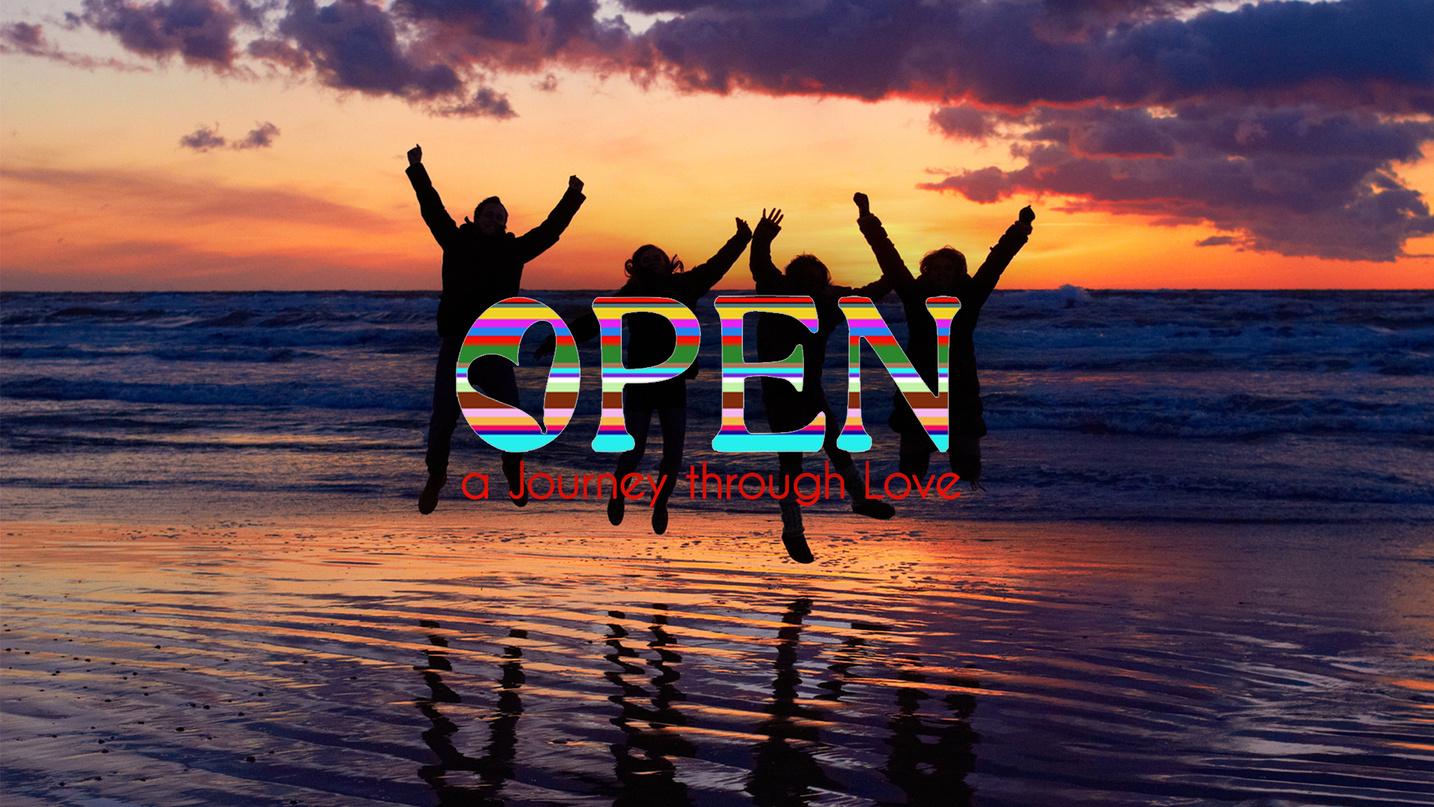
My name is Roderick Stevens and I’m excited to share the ongoing adventure around our production of the documentary “OPEN: A Journey Through Love,” which seeks to destigmatize ethical non-monogamy and examine the profound and positive impacts it can have on individuals and relationships. First, a brief bit about me. As an awardwinning filmmaker, I’ve enjoyed over 30 years in the industry in various capacities, from Cinematographer and Production Designer to Writer, Director, and Producer. I’m also an award winning writer and fine artist I say all of this not to boast but rather in hopes I es.

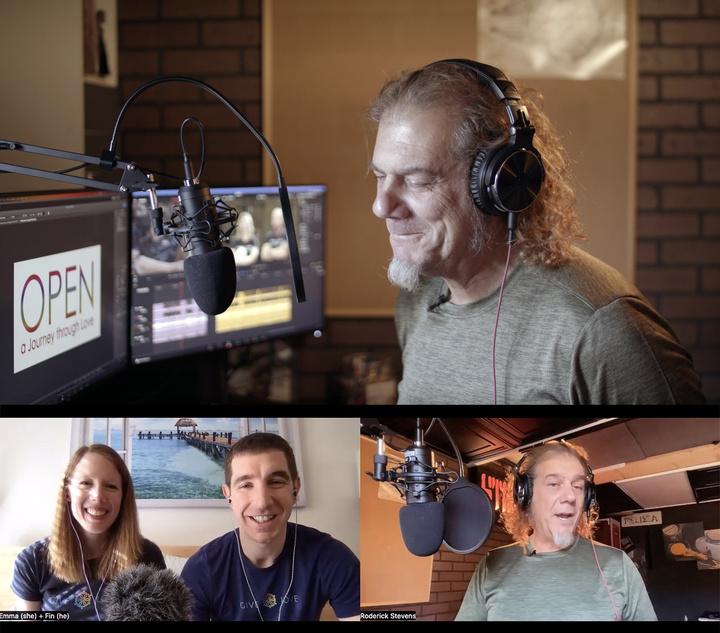
art with a bit-o-history.
ur he ar, we’ve chosen to refrain from marriage, but referring to each other as “boyfriend and girlfriend” sounds like we’re sophomores in high school, which was admittedly several moons ago. “Partners” sounds like we own a towing company together. So, we settled on the notion that I’m her “probation officer” and she’s my “prom date.” None of that is especially important, but about three years ago I was diagnosed with autism and so now you’ll know why you’re often likely to get more detail than you expected.
Admittedly, Jane and I met under the pretense of, at most, a fling. Neither of us felt in a position to get into a relationship at the time but we were both starved for affection. We met on what was essentially a hook-up site, enjoyed some downright life-altering sex, and then accidentally fell in love.
Subsequently, sex has always been a linchpin of our lovely entanglement, including sharing fantasies and the like. We spoke of others joining us in our seductive shenanigans but it was all fun pillow talk that neither of us was truly in a place to execute such a plan in reality.

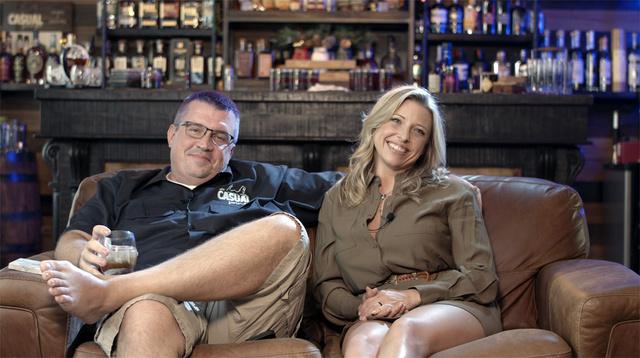
Meanwhile, among my assorted day jobs, I happen to travel a lot. In 2021, while on a lengthy road trip, I stumbled upon a lifestyle podcast, at the time having little idea what the “lifestyle” even referred to. As you might imagine, I soon learned. Over seven days, I binged through seven years of this happily married couple sharing their experiences as they opened up their marriage to sexual adventures with others.
To my autistic brain, that compressed view provided surprising clarity about how this alternative form of relating had deeply impacted their communication, self-esteem, compassion, authenticity, and ultimately their intimacy.
By the time I returned to my prom date’s loving arms, I proclaimed with great fervor, “Loveyface, sex with other people sounds titillating and all, but we must not settle for anything less than the kind of incredibly open and authentic relationship I’ve been hearing about.”
She trusted me enough to know I had no ulterior motives and we set about embarking on the steps necessary to safely and cautiously wade into those unorthodox waters.

We focused on learning to better identify our feelings and communicate them honestly with ourselves and each other, to be vulnerable while also providing a safe, compassionate space for the other to do the same, to challenge those old fear-based insecurity narratives, and to love ourselves as we are. As we made our way through the obstacle course of conditioned thinking and learned to enjoy the sexy lifestyle environment, I began brewing on how I might merge this newfound passion for broader, yet deeper human connection with my love of filmmaking.
In the summer of 2022, while attending Podcast-A-Palooza in Palm Springs, it hit me like a slap-o-truth to the face; two plus two equals four, gravity is real, and I need to make a documentary all about this important, often overlooked aspect of ethical non-monogamy.


I promptly reached out to a variety of people from DTF swingers, hotwives, and bulls to polycules, podcasters, content creators, relationship coaches, and authors. As of this writing, I’ve traveled over 25,000 miles and gathered 80-plus hours of interviews with dozens of people, but we’re not done yet. By the time I’m into post-production, we’ll likely have well over 100 hours to distill down to 90-ish minutes.
As many of you might agree, I believe there is so much to talk about in the broader space that I believe we could create an entire series that delves more deeply into a variety of sub-topics. Thus our conversations have touched on a great many subjects that aren’t within the scope of this initial film, which is quite specifically and stubbornly focused on how these alternative forms of relating can impact people and relationships.
I’ve mentioned often that if n i commercial were to ever come of this pr would have already had one of the g experiences of my life producing it. Wh embarked on long road trips, and gat interviews, Jane has endured my gushing hour every night about all of the am conversations with such incredible p Meeting those who are learning to themselves and own their authenti downright soul-nourishing. Fortunately believe the world is changing. The community appears to be experienc notable surge over the last decade, esp since COVID-19, and despite some tro social challenges currently ricocheting a the U.S., I believe the world at large is re start hearing about some new concepts in relationships.
I look forward to contributing more here about what we’re learning about ourselves, each other, and the world around us on this adventure.
In the meantime, you can check out a 5minute preview of the documentary at https://www.openjourneylove.com, where you can also sign up for our newsletter which we’ll send out every few weeks to keep people informed of the progress of the production and we’ll never share any email addresses.
Find us on all our socials below
Roderick (and Jane) Swingtroverts

openjourneylove@gmail.com
www.openjourneylove.com
Twitter - @swingtroverts
Instagram - @openjourneylove
YouTube - @openjourneylove
Telephone - (323) 389-7411
“OPEN: a Journey through Love” seeks to de-stigmatize ethical nonmonogamy and examine the profound positive effects it can have on individuals and relationships.
When first exploring non-monogamy, I was fairly consistently plagued by one particular thought: “What if I’m not good enough?” The years of monogamous relationships and societal messaging had led me to believe that if I wasn’t someone’s one and only, there must be something wrong with me. If my husband wanted to date or have sex with others, that must mean something about me. Maybe I wasn’t pretty enough, smart enough, fun enough…
It takes time to work through mononormative thinking, and it is not an easy task. It’s difficult to live in a world where we choose to pursue something outside the norm, and especially challenging when there aren’t a lot of resources to support us in that journey. I started my coaching business, Both/and Coaching, LLC, for that very reason: to provide support to those in the nonmonogamous community who were newbies, or who found themselves lost and feeling like they had missed steps after practicing non-monogamy for some time.
In my work, the worry about not being enough is the most common fear. It’s comforting, in an odd way, to know that I am not the only one who had these thoughts, AND I consistently wish that I could help convince my clients that they are ALWAYS enough.

So, the big question is – why do we feel this way at all? How can we go from being so sure about our worth one minute, to so deflated and selfcritical the next?
Honestly, I could probably list about fifty reasons why this happens, but three main factors come to mind:
Whether we love society or not, it does not always love us. As polyamorous people, swingers, people in open relationships, and relationship anarchists… there's a lot of stigma and judgment and questions out there. No matter how strong of a self-concept we feel like we have, and how confident we are in the choices we're making for ourselves, it's still virtually impossible to go through your life hearing certain messages and getting them kind of embedded into your brain constantly and not have them affect you in any way.
you ' re not strong enough. It
to just have a thicker skin.
you ’ re not
Fear is one of the largest motivators there is. When we start out doing something new, we recognize that there’s a lot of potential loss, which is terrifying. We might worry about losing a partner, losing family or friends over our lifestyle choices, or not being strong enough to handle certain situations. We might find ourselves in a spiral of, “What will happen if I’m not good enough for…”


Insecurities come up, it’s part of being a human being and having a human experience. It’s also part of the human experience to take our fears, couple them with societal messaging, light them on fire, and douse ourselves in the flame, filling the cracks in our minds with it. We speak to ourselves in ways we would never allow someone else to speak to us, or to speak to someone important to us. We start to internalize the flame, believe it, and start acting in ways that are aligned with that negative thinking: and that is where insecurities come in.
Facebook Group: www.facebook.com/groups/nonmonogamousnewbies
IG: https://www instagram com/nonmonogamous newbies/

It’s okay that these things affect you. It doesn't mean
doesn't mean you need
And it doesn’t mean
built for non-monogamy.
It's okay to be afraid. Fear can be healthy. Just don’t let it overwhelm you. When you feel that fear rising, do yourself a favor and take a step back, a few deep breaths, a walk around the block, or whatever feels supportive to you.
If the world tells us that what we are doing is strange, that what we should want is to be monogamous, along with having a hard time making connections with others on dates or in play spaces, sooner or later we begin to believe these things. It can even start to feel obvious that we aren’t enough because of XYZ.
Do NOT listen to that voice. Perception is reality, and the more you tell yourself that same story - the one where you’re not enough because you’re not doing the normal thing, you’re going to lose someone because you’re not enough, and you then allow insecurities to fill you with that sense of dread - the easier it will become to believe.
Focus on your strengths. You can roll your eyes at this if you want, I can’t see you anyway. Ask yourself, “What do I do well?” “In what ways am I a good partner?” Start there.
Talk to your partner(s) and let them know what’s going on. It’s okay to ask for reassurance. It’s not weak or needy, it’s human.
Isolate the thought in your mind (or on paper) that pokes the “not good enough” nerve. For example: “I’m not good enough for my husband because he wants to be with other women.”
Then, tune into your body and ask, “On a scale of one to five, how true does that statement feel for me right now, in this moment?” This number might be high.
Next, take a deep breath to release those feelings and ask, “On a scale of one to five, how true is that statement likely to be in reality?” This number is likely lower. Repeat this exercise as needed.
At the end of the day, this stuff is hard. It just is. Remember to be kind to yourself and give yourself the grace you would give to a friend when they’re learning something new or having challenging feelings. And remember, I’m here if you need me.

I just finished the book “The Power of Habits” by Charles Duhigg it got me thinking about the things we do every day. Our days are filled with things that we do out of ‘habit’, from the time we wake up and check our phones to the time we go to sleep at night. Some of them productive, and others not exactly conducive to meeting our goals. In his book, Charles Duhigg says, “What you do every day matters more than what you do every once in a while”. How many of us have tried to establish healthy habits only to give up on them after a few days?
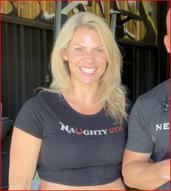
“What you do every day matters more than what you do every once in a while”
Charles Duhigg
WE ALL KNOW THAT WE SHOULD EAT HEALTHY AND EXERCISE REGULARLY, AND YET THE MAJORITY OF PEOPLE DON’T. WHY? HABITS.
I’m going to share with you a few tips that I have used to not only establish healthy habits in my daily life but also maintain them.
1. Find someone to hold you accountable
A major reason that most people fail when they set out to establish a new exercise or nutrition program is a lack of accountability. It’s much harder to hit that snooze button if you know that your friend Bob is waiting on you at the gym. Or if you have someone tracking what you eat every week, it makes it much easier to say ‘no’ to that extra piece of pie.
So, recruit a friend, family member, or co-worker to help keep you accountable. Ask them to check in with you. Or better yet, reach out to that one crazy friend you have that seems to be in the gym every day and ask them if you can come work out with them. I promise they will be happy you did!


Make a plan and write it down. Your plan should include small, reasonable goals and the specific actions that you’re going to take to meet those goals. For instance, if you get junk out of the vending machine in the break room every day, try avoiding the break room and instead pack your own healthy snacks from home to keep at your desk. Plan for the obstacles. What typically derails you, and what can you do to stay on track and not default to those old habits? If you need help setting goals and formulating a plan, reach out to me or Coach Scott. We are here to help. Once you set some goals and make a plan, post it in our group! We have an extremely encouraging and friendly group to help support you.
Sometimes, when we start pursuing healthy habits, it seems like more roadblocks pop up. You need to remember that you’re never too out of shape, too overweight, or too old to make healthy changes. Sometimes, you have to make small changes in strategy along the way. Be patient with yourself and your progress. Change is a process, and what’s most important is that you continue to move forward.
We are here to help.
Stay naughty, friends.
In health, Coach April
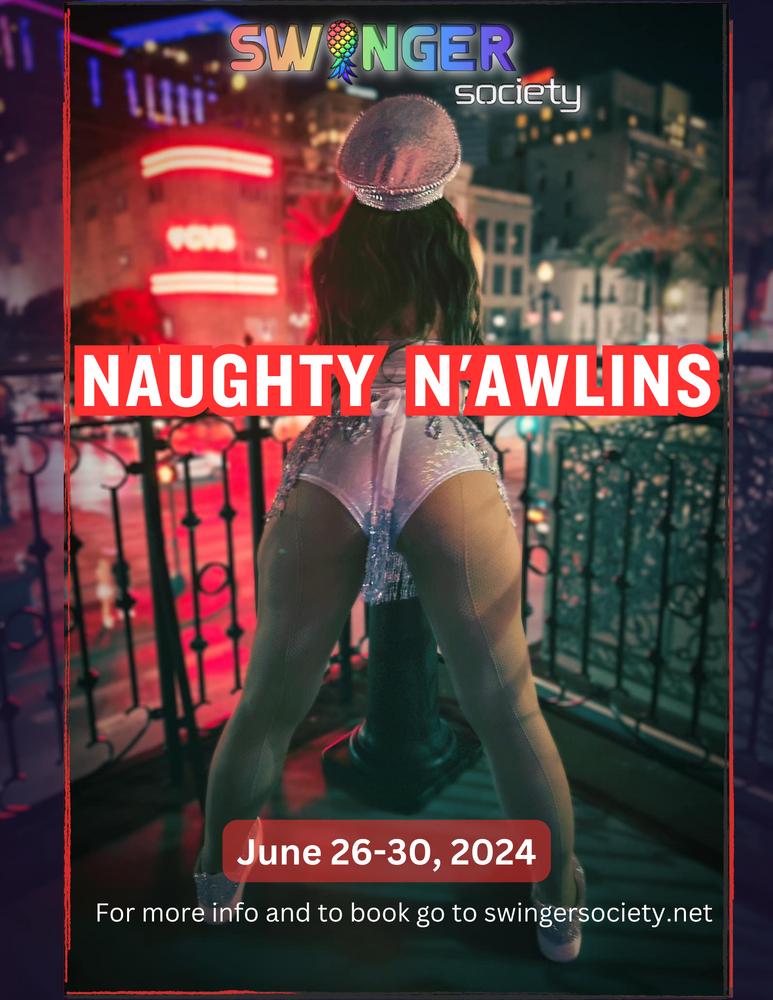

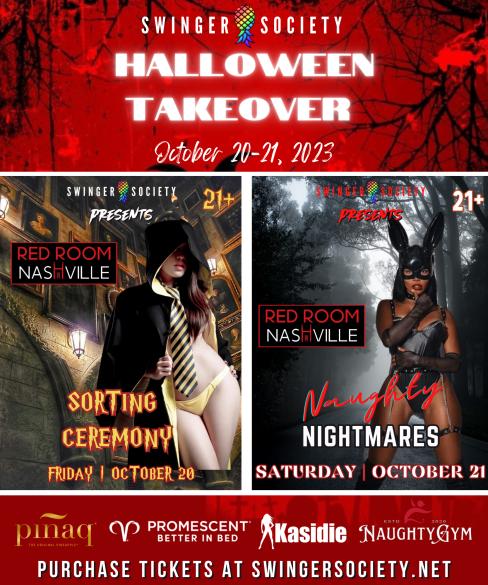


You may be wondering why we’ve decided to launch a magazine. That’s a fair question! If you’re familiar with us you know that we host one of the nation’s top podcasts on nonmonogamy and get millions of views monthly on social platforms like TikTok, Instagram, and Clapper.

So why add something else to our plate and start a digital magazine? The truth is, ALT Life Magazine isn’t about us. It’s about you and the community of people who have a message to share and need a platform to do it.
This magazine is for people who may not be able to put themselves out there publicly on social media due to fear of judgment and backlash. Over the last year and a half of our journey into becoming social media influencers for the alternative lifestyle community, the one thing that’s remained consistent is the community and the people that encompass it. Alternative lifestyle people are some of the kindest and most genuine people on the planet. The world needs to hear your stories, to get to know you, to fall in love with you like we have.
Our hope is that if they can see you for who you truly are, then perhaps the hate, the stigma, and the discrimination will come to an end.
We belie that is to from the light on the community.
So, we’d like to encourage all of you to contribute, to share your stories, to be heard.

We want you to be able to show the world how truly amazing and valuable this community is. We hope that one day we can all come out of the darkness and not have to live in fear.

